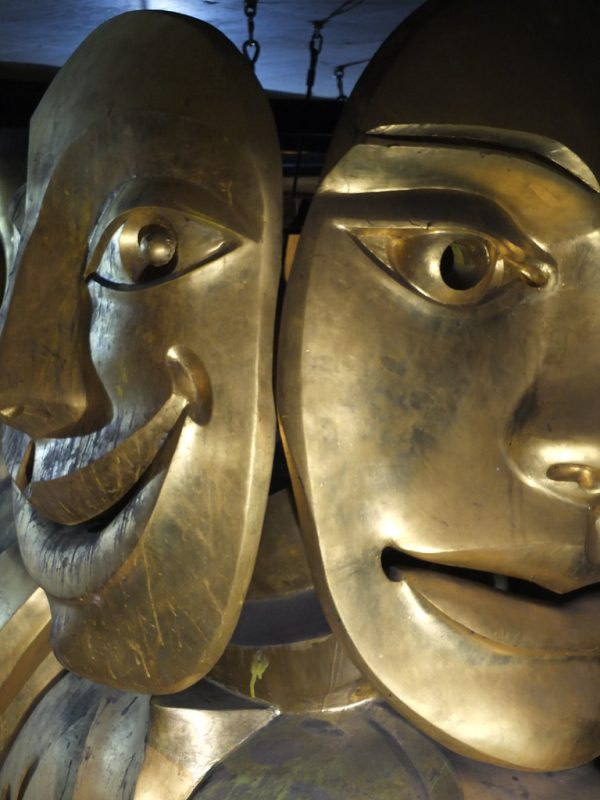At the heart of our interactions and the decisions we make lies our “true self,” a guiding force shaped by our deepest values, beliefs, and personal traits.
This authentic essence influences how we perceive the world and interact within it. However, there are moments when our true selves seem to retreat, especially in the company of certain individuals or in specific situations.
This phenomenon leads us to adapt our behavior, often masking our genuine identities. Let’s discuss our understanding of the true self, why we sometimes conceal it, and how this impacts our actions and relationships.
The Essence of Your True Self
The concept of the “true self” refers to the most authentic version of who we are, encompassing our moral compass, values, and intrinsic personality traits.
This core identity remains constant despite the various roles we may adopt in different contexts. For instance, in challenging situations where we’re met with adversity or misunderstanding, our reactions—such as choosing forgiveness over resentment—stem from this genuine place within us, reflecting our true nature and capacity for empathy.
The Dynamics of Concealing Your True Self
Why might someone choose to hide or alter their true self? The reasons are as varied as life’s many scenarios:
- Working with untrustworthy individuals
- Encountering someone who evokes discomfort or nervousness
- The awkwardness of first-time meetings
- The pressure of public speaking or performance
- Expectations set by friends, family, or societal norms
- Navigating through difficult or transformative life events
In these instances, we perfectly imperfect and often insecure human beings present what Deepak Chopra describes as the “everyday” or “false” self—a persona adapted to fit what we believe is expected of us in our current environment or the ‘face’ we wear to protect our vulnerabilities.
The Impact on Actions and Relationships
The authenticity of our relationships and the depth of our connections depend on the mutual recognition and acceptance of each other’s true selves.
Understanding someone at this deep level enriches our relationship with them, enabling us to empathize and connect more deeply than with those we have more superficial relationships with. Displaying our true selves is an act of vulnerability and trust, often evolving gradually as we become more comfortable in our surroundings or with new acquaintances.
For example, starting a new job often means navigating the workplace with a more reserved or “buttoned-up” version of ourselves. Over time, as we grow more comfortable with the company culture and develop trust in our colleagues, we gradually allow our true selves to emerge.
Conclusion
Navigating the delicate balance between our true self and the personas we adopt in various social contexts is a fundamental aspect of human interaction.
Recognizing and honoring our authentic selves while understanding the reasons behind our occasional retreat into a “false” self is key to fostering genuine relationships and living a life aligned with our core values.
As we walk through life’s diverse experiences, we should strive for the courage to be our authentic selves, embracing the vulnerability of exposing our true selves to the world.
Journaling Prompts to Encourage Embracing Your Authentic Self
Use one or more of these prompts to start or deepen your personal journaling practice. Give yourself time to think about what the prompt brings up for you and explore your feelings on paper. If you need a journal, click HERE to see our available journals.
- Reflect on moments when you felt compelled to hide your true self. What prompted this, and how did it make you feel?
- Consider the values and beliefs that constitute your true self. How do these guide your decisions and interactions?
- Think about a relationship where you feel fully able to be your true self. What factors contribute to this sense of safety and acceptance?
- How do I feel when I am unable to express my true self, and what strategies can I employ to overcome these barriers?
- In what ways have I allowed societal expectations to shape my “false” self, and how can I begin to dismantle and remove these influences to live more authentically?
Affirmations for Embracing Your Authentic Self
Read the set of related affirmations below aloud. It’s important to your conscious and subconscious mind to hear the affirmations said in your own voice. Choose one or two of the affirmations from the set to start working with. You only need one or two affirmations, used consistently, to make a substantial change in your life.
Choose one affirmation that feels easy to you and choose another that generates resistance or disbelief. The idea is to practice extending your current self-imposed limits and encourage growth.
Say your chosen affirmation loud enough for your mind to hear your voice saying the words and take notice of how you feel as you begin and as you continue your practice. Repeat your chosen affirmation multiple times a day for at least 30 days and reinforce your affirmation by writing it in your journal.
You can change your life by beginning an affirmation practice – using one or two favorite affirmations over the course of 30 to 60 days can permanently change your mindset and your life.
- I am worthy of being seen and accepted for my true self.
- My authentic self is my greatest asset and source of strength.
- Embracing vulnerability by showing my true self deepens my connections with others.
- I honor my true self in every situation, recognizing its power to shape my destiny.
- By embracing my true self, I invite authenticity and deeper connections into my life.






